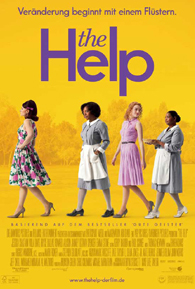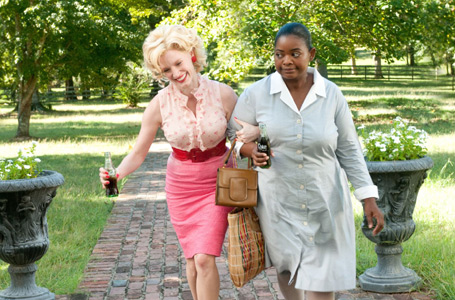
Based on the novel of the same name, The Help is set on the eve of the civil rights movement. Emma Stone plays a rare southern girl who goes to college, gets educated, falls prey to liberal notions like feminism (and as her mother, played by Allison Janney, suspects, other more perverted notions that luckily can be cured with modern medicine!), and wants to earn a living after graduation. That makes her a social rebel, sticking out from her childhood friends who spend their afternoons at their bridge club socials gossiping away.
The story, as the film claims, is not about Skeeter or her cohort but the 'coloured' maids who serve in white homes – bringing up their children, cooking their food, cleaning their house with nary a complaint despite some amount of racial supremacist attitudes from their employers. Her literary ambitions lead the fresh college graduate to cajole the maids of the town to let her publish stories about their lives and work for white households, to teach white people to see through their eyes.
With fine comic timing, Viola Davis and Octavia Spencer play the pair of African-American maids who turn Skeeter’s project into reality. The film chronicles their amusing exploits, secret triumphs (a white toddler exclaiming "You’re my real mummy!" the moment its mother is out of earshot!), and misadventures serving as helps, the unfolding storm that their literary project causes, as well as the one lost soul that it redeems (via a very underused Allison Janney). That is to say, the film gets away with resurrecting worn cinematic stereotypes about sassy African-American nannies who spout homespun truths and cliques of popular and mean white girls, and manages to craft an amusing and uplifting series of anecdotes from playing around with these stereotypes.
Despite a few moments of minor confrontation and dramatic speechmaking, The Help remains an amiable, non-threatening tale about the civil rights movement in the Deep South where apparently the worst injustices and violence of racial segregation and white supremacy take place elsewhere. All these helps have to deal with is the nastiness of their white employers, the existential angst that they are bringing up other people's children while having to leave their own unattended, and the horror that the kids they spend so much time bonding with often end up as mean racist employers when they grow up. This being a feel-good dramedy, the last part of what these helps have to live with is left unexplored even though it should be the most intriguing mystery of this story.

